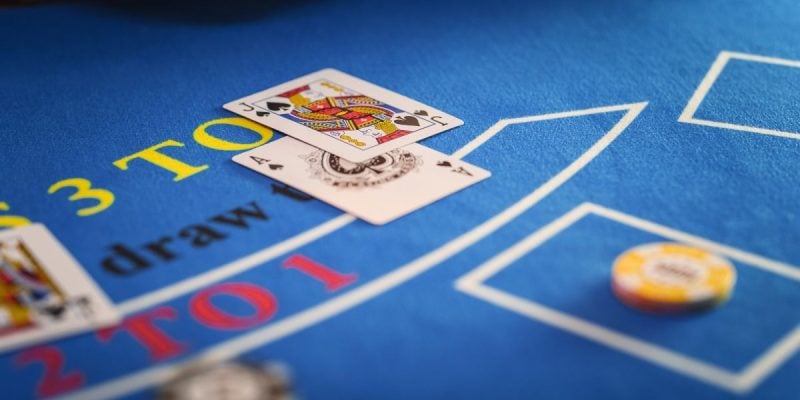With two weeks left in the legislative session, a California bill providing Indian tribes standing to sue cardrooms over the way they offer banked games such as blackjack is being primed for possible passage.
The Assembly Appropriations Committee advanced the Tribal Nations Access to Justice Act on Thursday with a 14-0 vote.
The late committee action for SB549, which also moved through the Governmental Organization (GO) Committee last month by a 14-1 vote, seems to indicate plans for a floor vote, at least in the Assembly.
Tuari Bigknife, attorney general for the Viejas Band of Kumeyaay Indians, which has led the charge for the bill, hopes for Assembly passage next week.
The bill must pass the Assembly and get concurrence from the Senate before the legislature adjourns on Aug. 31, then be signed by the governor.
SB549 will have some support from leadership on the Assembly floor. Assembly Majority Leader Cecilia Aguiar-Curry is a joint sponsor of the bill.
“There’s no reason to think it’s not going to get a vote,” Bigknife said. “In my opinion, it would have died in any one of these committees if it wasn’t going to get its day. We’re pretty sure we have the votes to pass it in the Assembly, but until someone casts their vote you can never say for sure.”
Why California Indian tribes are asking for legislation
California Indian tribes have long held that California cardrooms violate state law and tribal gaming exclusivity by offering banked card games.
The California Constitution prohibits Nevada- and New Jersey-style casino gaming.
In 2000, voters passed Prop 1A amending the state constitution to provide an exception for Indian tribes. By entering into compacts with the state, they could offer slot machines, banked and percentage games at casinos on tribal lands.
Cardrooms contract with third party proposition player services (TPPPS) to bank games such as blackjack and baccarat. The state registers the TPPPS and regulates the games.
Courts threw out prior lawsuits filed by tribes to settle the matter, without a ruling on the merits. Tribal sovereignty generally doesn’t allow tribes to sue commercial entities, nor commercial entities to sue them.
Last year, the California Bureau of Gambling Control offered concept language for regulations prohibiting blackjack-style games and providing tighter restrictions on player-dealer rotations. However, it’s unclear when or if the Bureau will move ahead with implementing the regulations.
So tribes are asking legislators to allow them a limited window of three months to bring action against cardrooms and TPPPS to decide whether they are violating state law by offering a banked card game. All claims would go in one lawsuit that does not allow monetary payments for damages, penalties or attorney’s fees.
Passage still up in the air as lobbyists work overtime
While tribes have their first real momentum toward passing SB549, there is plenty of opposition.
It’s not only cardrooms working the halls on Capitol Hill. It’s unions representing the 30,000 workers they employ and the cities in which they are located. Cardrooms have rallied additional unions to join the fight.
“The cardrooms have gotten really noisy since this thing passed out of GO,” Bigknife said. “These folks who claim they’re too destitute to litigate a case are clearly spending millions of dollars right now. If they think what they’re doing is legal, they should save that money to go out and beat us.”
Cardrooms accused tribes of illegally offering craps and roulette. They argue it’s unfair to allow tribes to sue them when they can’t sue tribes.
“SB 549 is unnecessary and puts at stake the budgets of dozens of primarily underserved cities across the state during a $30+ billion state budget shortfall and recession,” Kyle Kirkland, president of the California Gaming Association, said in January. “All to benefit a few wealthy gaming tribes who already do not pay state gaming or income taxes.”
SB549 passed the Senate last year as a different bill entirely before Sen. Josh Newman substituted the tribal lawsuit language. Because the Senate would only need to concur with the Assembly changes, the bill could go directly to the Senate floor if it passes the Assembly. But that is up to Senate President Pro Tem Mike McGuire.
“At the end of the day, if everyone stepped away from who’s on the other side of the bill and asked the fundamental question of whether someone should be able to protect their constitutionally granted rights by California voters, not using the words tribes and cardrooms, people would say yes,” Bigknife said. “It’s anti-American to say otherwise.”








